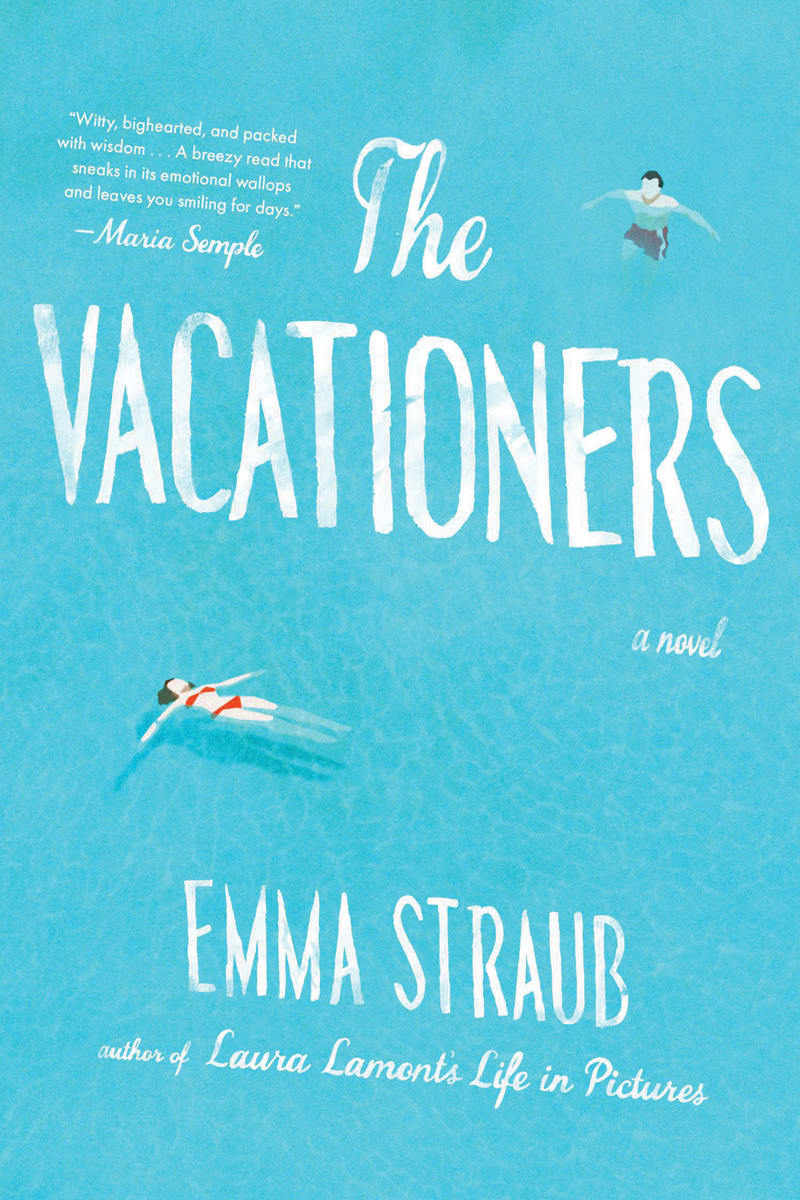Of all the possible things that can rock a teenage girl’s world, its the revelation that her family members are flawed, sometimes wholly unlikable beings that can sting the most. Sylvia Post, recent high school graduate and soon to be freshman at Brown, finds herself in the midst of this revelation when we meet her in Emma Straub’s second novel, The Vacationers, a two-week long bender of family, disappointment, romance, and redemption.
Sylvia and her middle-aged parents, Franny (a writer) and Jim (an editor), are off to the Mediterranean island of Mallorca for a of vacation that, despite its bougie-rustic setting, feels anything but relaxing. They’re joined by Franny’s best friend Charles and his husband, Terry, along with Sylvia’s older brother Bobby and his fitness trainer girlfriend, Carmen. As Straub writes, “The house was big enough for all of them, barely.”
Though the trip coincides with the Post’s 34th wedding anniversary, a feeling unease pervades their exchanges; Straub hints at the incident behind their struggling marriage in flashes before we’re able to get the full, pathetic story. The same anxiety goes for the remaining couples, each with their own personal squabbles and crises. Despite the crowded home, Straub makes sure to spend a little time in each of her many characters’ heads—most touchingly Franny, the tough-yet-wounded matriarch of the bunch. Now in her 50s, Franny finds herself at a crossroads she never prepared for—her youngest child off to college, and the possible end of her marriage.
It’s Sylvia whose character who is drawn so completely well, placing me back into the family vacations of my own youth. (Turned-up headphones on a long car ride to drown out my brothers; glances at the awkwardly handsome boys in our hotel.) As the only uncoupled guest in Mallorca, Sylvia observes the myriad of relationships around her—and the shitty way we can sometimes treat the people we love—allthewhile developing one of her own with her dreamy Spanish teacher, Joan.
Straub has a knack for depicting complicated, multi-layered relationships, like the jealousy that springs from Terry over Charles and Franny’s decades-long friendship. She also knows how to squeeze humor out of of seemingly irrelevant details, like Franny’s sandal flying off her foot while running to greet her son at the airport and Sylvia’s decision to crawl on the floor to deal with a particularly bad hangover. In fact, with these key details and her talent for dialogue (“I did a juice cleanse once, for a week, for a magazine. Remember that Jim? I lost four pounds and my sense of humor.”) the book reads so cinematic that I quickly started drawing connections between it and films like Everyone Says I Love You or even The Royal Tenenbaums, both of which depict artistic New York families with all their charm and eccentricities.
With her ensemble cast, Straub moves her players close together, far apart, and back again to remind us of how just malleable these family ties can be. Thankfully for the Posts, their ties are elastic—snapping back into place even after stretching as far as, say, the length of the Atlantic.![]()
